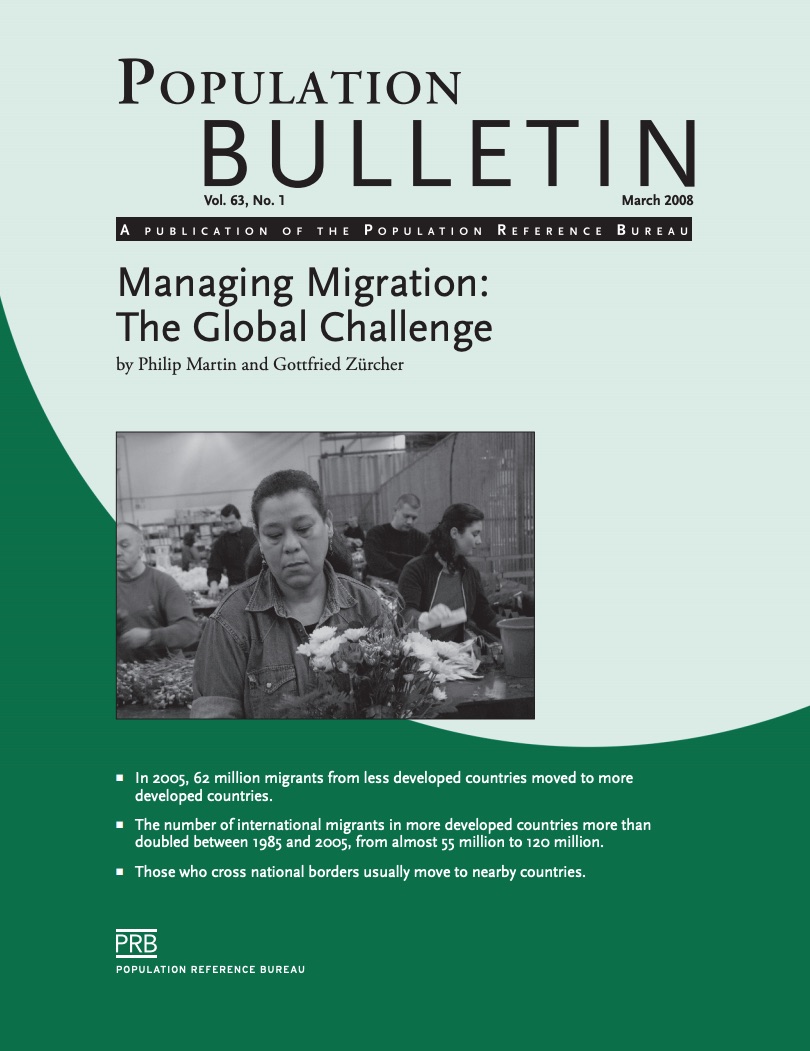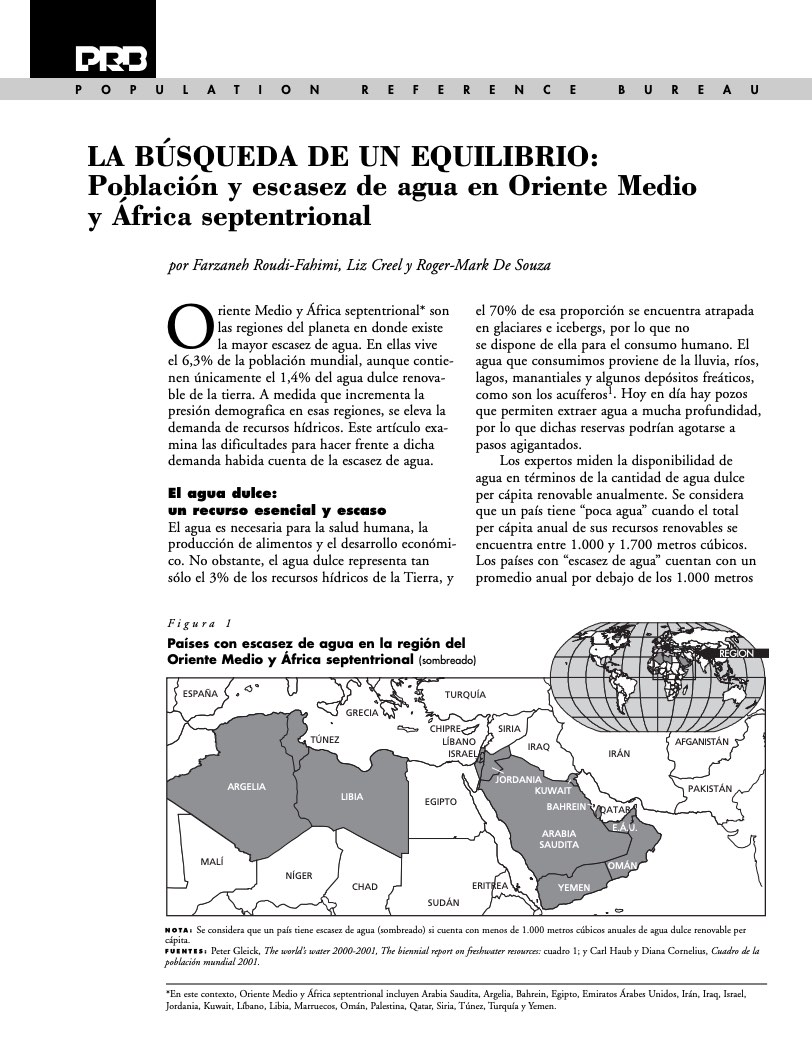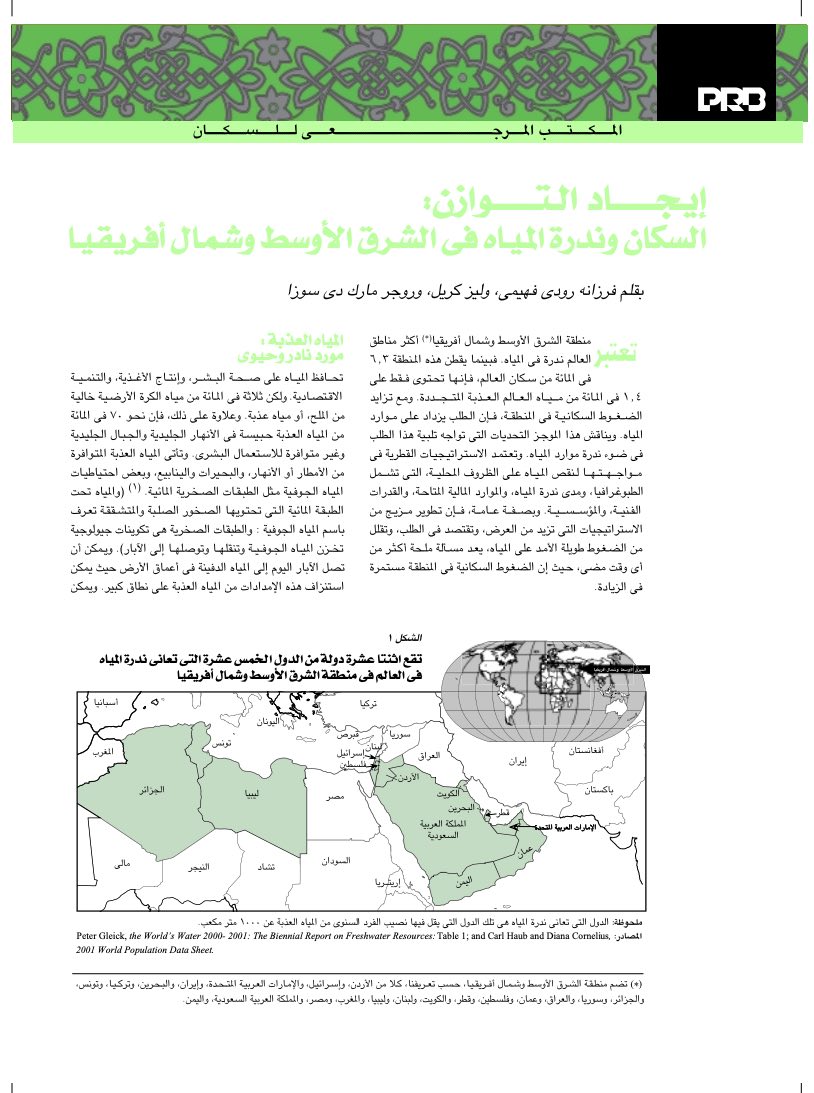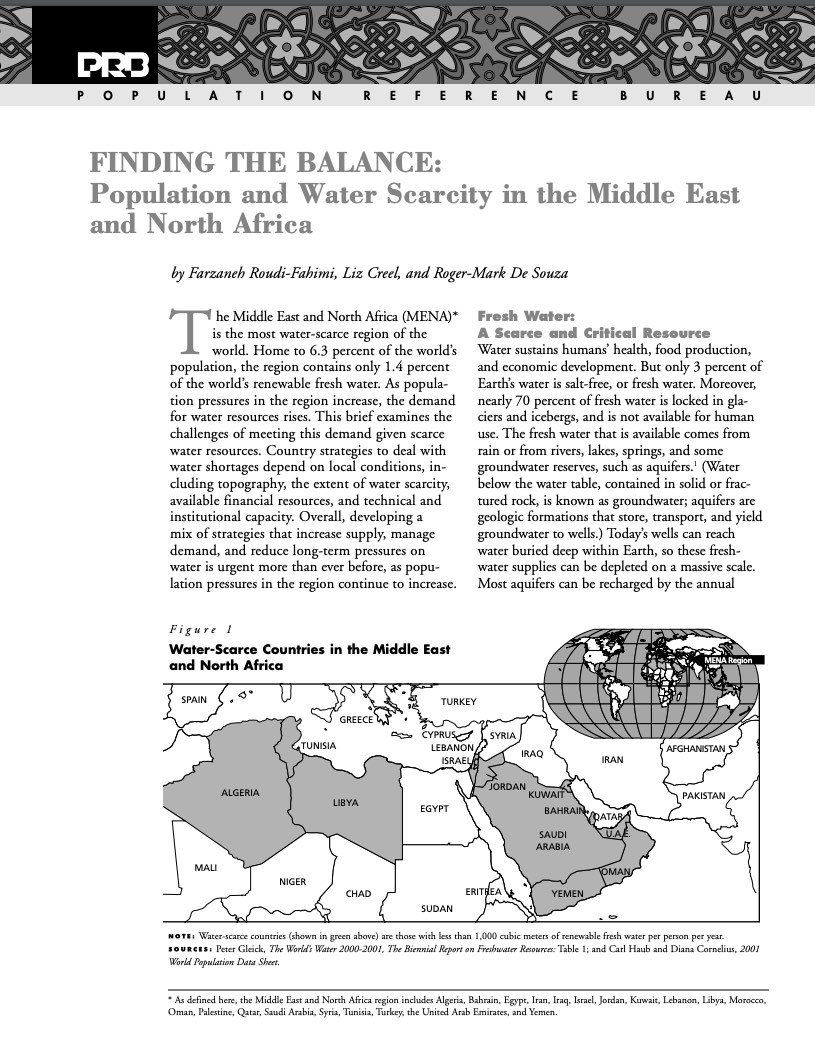PRB @ PAA 2024 Annual Meeting
Dates: April 17-20, 2024 Columbus, OH

(March 2008) The number of international migrants is at an all-time high. There were 191 million migrants in 2005, which means that 3 percent of the world's people left their country of birth or citizenship for a year or more.
(2014) Is there a retirement crisis, or are older Americans preparing adequately for their "golden years"?

(2002) The Middle East and North Africa (MENA)* is the most water-scarce region of the world. Home to 6.3 percent of the world's population, the region contains only 1.4 percent of the world's renewable fresh water.

(2002) The Middle East and North Africa (MENA)* is the most water-scarce region of the world. Home to 6.3 percent of the world's population, the region contains only 1.4 percent of the world's renewable fresh water.

(2002) The Middle East and North Africa (MENA)* is the most water-scarce region of the world. Home to 6.3 percent of the world's population, the region contains only 1.4 percent of the world's renewable fresh water.
At least 16 million Pakistanis have had to leave their homes because of historic monsoon rains that flooded a large swath of the country.1 The UN estimates the flooding has caused the deaths of 1,600 people, but the worst health effects are still ahead.
(2002) The Middle East and North Africa (MENA)* is the most water-scarce region of the world. Home to 6.3 percent of the world's population, the region contains only 1.4 percent of the world's renewable fresh water.